Film & Television
The Bachelor of Science in film & television equips students to work in various positions within the creative and production teams of film and television. With a strong focus on storytelling, students will learn how to convey their thoughts and ideas in ways that connect with an audience. They will also learn from experienced professors how to take creative ideas and make them flourish.
Trevecca’s Bachelor of Science in film & television equips you for a variety of careers within the film and television industries. From screenwriting to acting to production, the program emphasizes the role storytelling plays in today’s media. The degree culminates with valuable internship experiences, including an optional semester in Hollywood at the Los Angeles Film Studies Center.
Program Benefits
- Learn from faculty who possess high degrees in their fields, who have relevant and valuable real-world experience and who make an effort to know you personally.
- Study in our state-of-the-art communication lab.
- Enjoy our small class sizes and supportive campus community.
- Graduate with internship experience that makes you competitive in the job market.
- Take advantage of an optional opportunity to conclude your degree program at a film school in Los Angeles.
What to Expect
Trevecca’s film program prepares you to work on creative and production teams within the film and television industries in roles such as screenwriting, directing, producing, lighting, acting, editing, casting and cinematography. For those interested in broadcast journalism, this program equips you with knowledge and experience in news anchoring, reporting, producing and directing. The program offers you the flexibility to tailor your degree to match your interests and goals when you choose from two concentrations:
- TV/Film production
- Media studies
Storytelling is the heartbeat of our film & television program. The curriculum is designed to help you take your creative ideas and apply communication and narrative techniques in various mediums to produce projects that connect with your audience and impact the world. You’ll gain hands-on experience in our state-of-the-art communication lab, and you’ll have access to professional cameras, lighting equipment, and audio and video editing technologies.
If you are specifically interested in a career in film, you’ll choose between two tracks:
Track 1: You’ll study film through a variety of courses offered on Trevecca’s campus, and you’ll gain hands-on internship experience in the exciting and growing Nashville market. This track allows you to take advantage of Trevecca’s strong relationships with local production companies, studios, filmmakers and professionals in the field so you can gain valuable experience in the business.
Track 2: You’ll combine film courses at Trevecca with one semester at the Los Angeles Film Studies Center (LAFSC) which is operated by the Council for Christian Colleges and Universities (CCCU). You’ll complete your internship requirement while living in Los Angeles and taking courses at LAFSC. If you choose this track, you will:
- Spend a semester living in Los Angeles, the heart of the motion picture industry.
- Receive 16 credits in directing, acting and/or screenwriting that count toward your film degree at Trevecca.
- Get hands-on training with industry professionals in Hollywood.
- Work as a part of a team to create short films.
- Complete an internship with production companies, studios, agencies and more. Past LAFSC students have interned at 20th Century Fox Casting, Focus Features, ICM, Jerry Bruckheimer Films, Lakeshore Films and many more.
Learn more at www.bestsemester.com/locations-and-programs/ los-angeles
Why Choose Trevecca?
Founded in 1901 and a leader in online education for more than two decades, Trevecca helps students discover and pursue an individual calling by providing innovative instruction; cultivating a supportive, Christ-centered community; and establishing relationships that open doors.
Recognized nationally and locally for academic quality, Trevecca has earned a reputation for providing the world with servant leaders, problem solvers and difference makers. Trevecca’s holistic approach to education encompasses intellectual, social, emotional, physical and spiritual growth.
As a Christian university, we offer programs that explore the ways faith intersects with your field of study. This means you can gain your film degree in a supportive, Christian community with small classroom sizes and engaged faculty members who care about you, your faith and your goals.
Course Descriptions
Get details on all the courses you’ll complete as you work toward this degree at Trevecca.
Read More- Concentrations
- Locations & travel
- Program Photos
- Scholarships
-
TV/Film Production
-
Media Studies
Students within the Media Arts and Studies program who wish to pursue film as a career will have the option between two designated tracks.
The first track allows students to study film entirely on Trevecca’s campus. Students will choose from a variety of courses in television and film production including directing, screenwriting, acting, audio and theater.
The second track allows students to take a combination of courses at Trevecca and spend one semester at the Los Angeles Film Studies Center (LAFSC). LAFSC is operated by the Council for Christian Colleges and Universities. Students who choose this option will complete their internship requirement while living in Los Angeles and taking courses at LAFSC.
LAFSC Highlights:
- Students spend a semester living in Los Angeles, the heart of the motion picture industry.
- Students receive 16 credits that count toward their media arts degree at Trevecca
- Students will get additional hands-on training with industry professionals in Hollywood. Students will work as a part of a team to create short films.
- Students can focus on various areas including directing, acting, or screenwriting.
- Students have internships in LA with production companies, studios, agencies, and more. Past LAFSC students have interned at 20th Century Fox Casting, Focus Features, ICM, Jerry Bruckheimer Films, Lakeshore Films and many more.
Learn more at www.bestsemester.com/locations-and-programs/ los-angeles
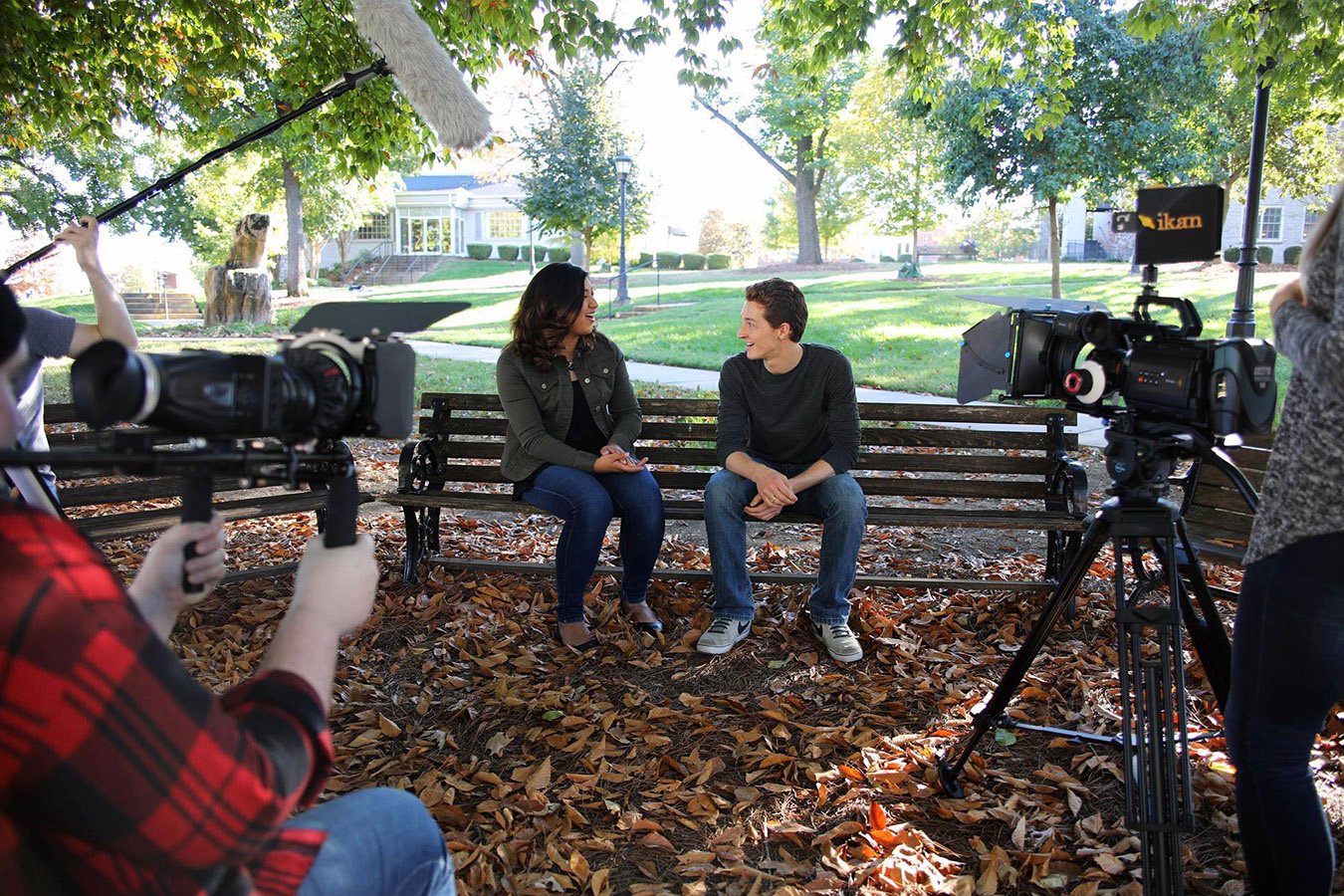 |
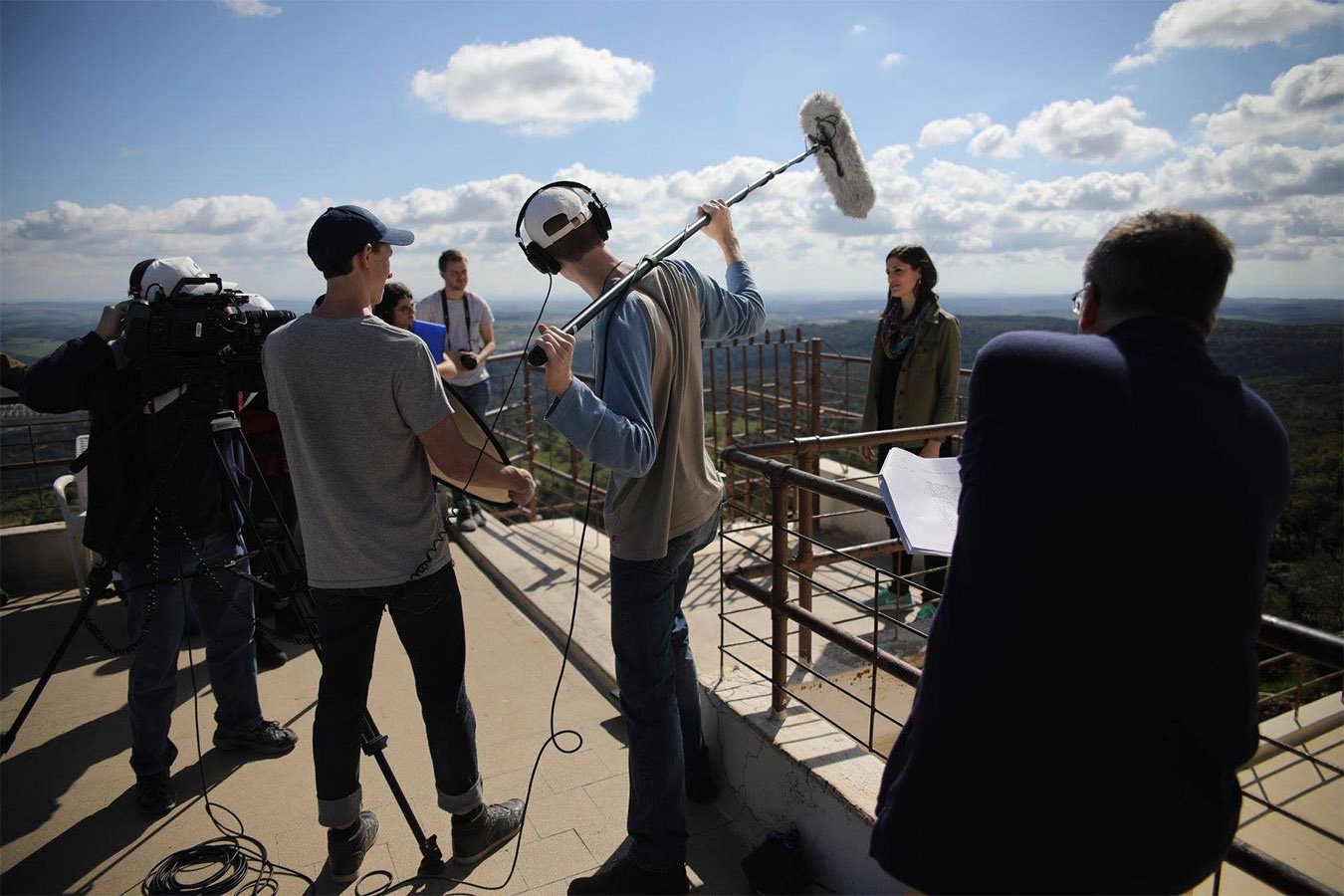 |
Career Opportunities
Our film & television program prepares students to work in various positions within the creative and production teams of film and television. These roles include:
- Screenwriting
- Directing
- Producing
- Lighting
- Acting
- Editing
- Casting
- Cinematography
The program also prepares students pursuing careers in other areas of television like these:
- News anchoring
- News reporting
- News producing and directing
- Broadcast journalism
The film & television program at Trevecca was one of my main reasons for attending the university. I have learned so much about the industry through hands-on experience and class work. The small class sizes really help because not only do you learn about media but the classes become more like a family.
Our Faculty
-
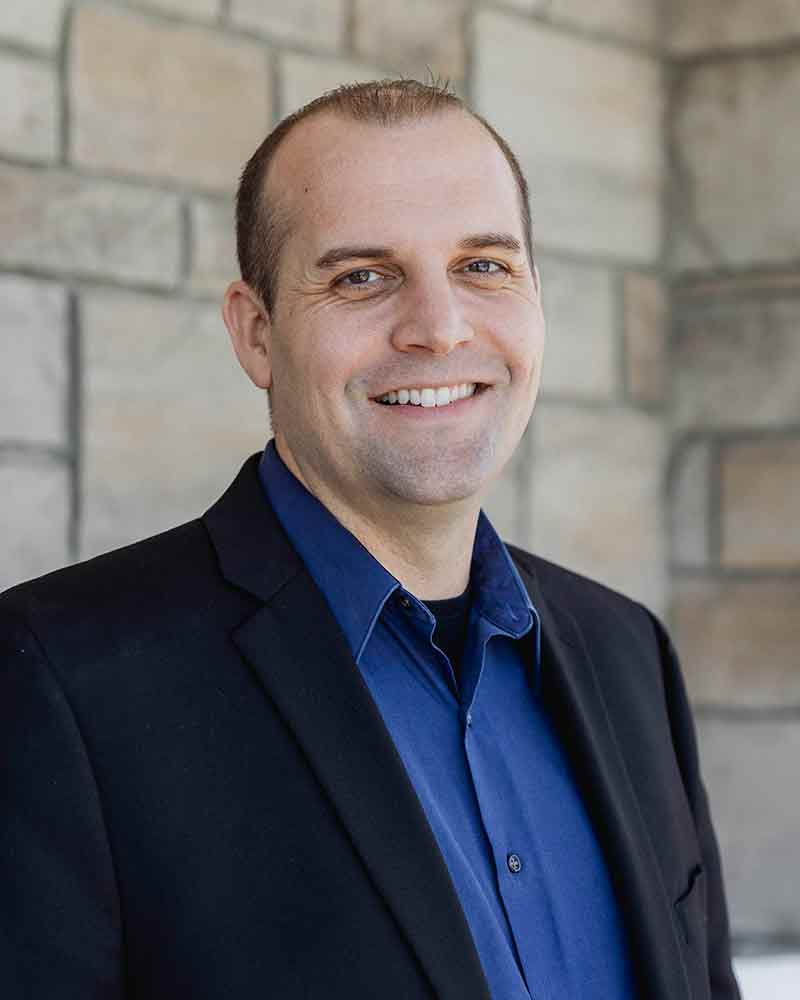
Seth Conley
Professor, Communication Studies
Read Full Bio
BiographySeth is a professor of film and television at Trevecca Nazarene University. He teaches courses ranging from cinematography and editing to directing and screenwriting. He holds an MFA in film & television from Asbury ...
-
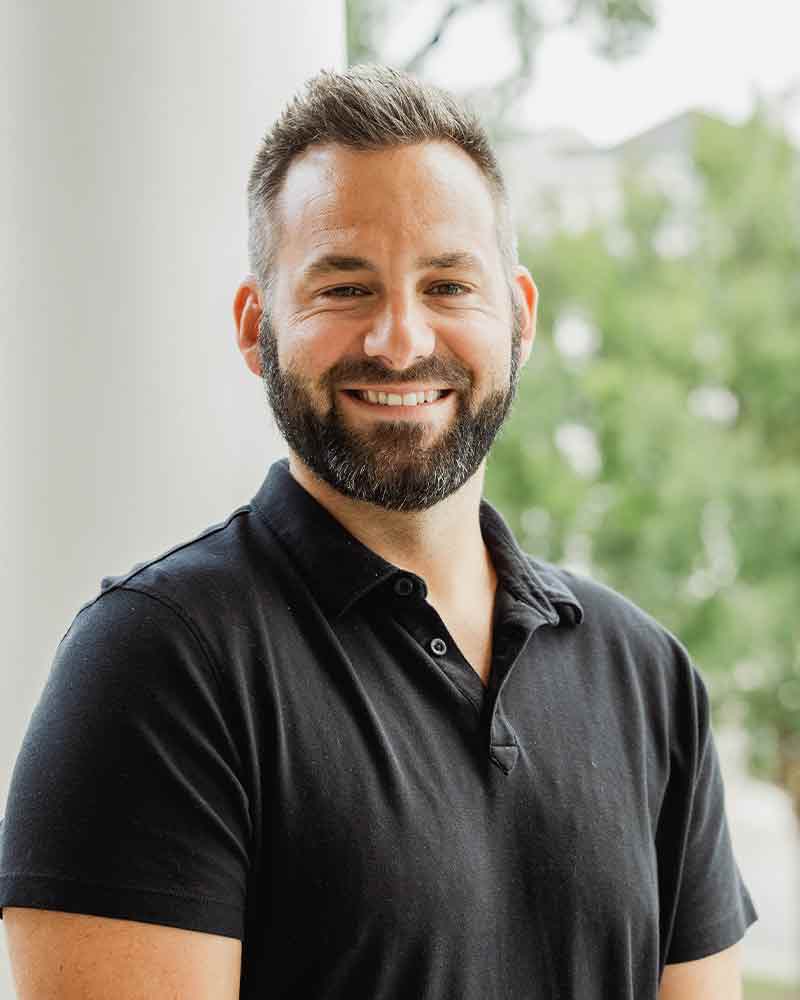
Adam Drake
Instructor, Film and Television
Read Full BioAdam is a part-time instructor of film and television at Trevecca and an award-winning filmmaker who currently resides in Cookeville, Tennessee. He teaches courses in production, cinematography and lighting, on-set management, and more. Adam has ...
-

Jeffrey Frame
Professor, Dramatic Arts And Communication Studies
Read Full BioJeff is a professor of dramatic arts at Trevecca and teaches theatre at the undergraduate level to students majoring in dramatic arts and theatre education. He also teaches applied theatre, musical theatre and media studies. With more than 35 ...
-
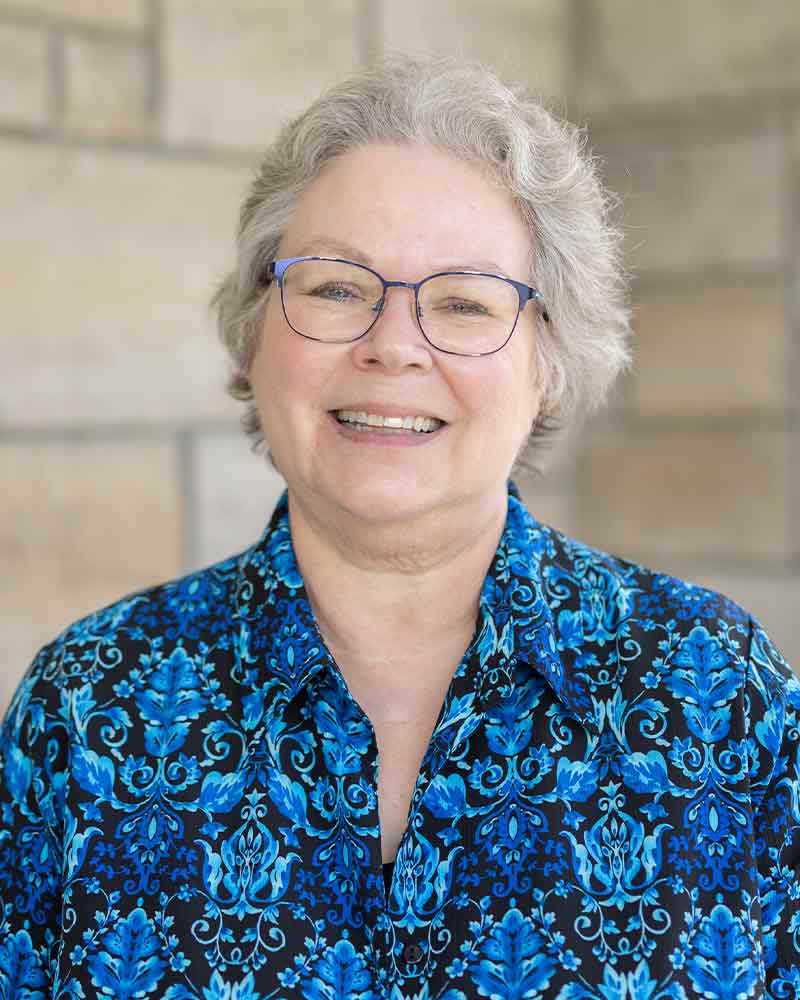
Lena Hegi Welch
Dean, School of Arts & Social Sciences | Professor of Communication Studies
Read Full BioLena is the dean of the School of Arts and Social Sciences, associate provost of traditional undergraduate programs and a professor of communication studies. She graduated with her B.A. from Trevecca Nazarene University, her M.A. from Auburn ...
-

Jeffrey Wells
Professor, Communication Studies
Read Full BioJeffrey has taught communication and theatre at the collegiate level since 1991. He rejoined the Trevecca community in June of 2016 after serving as chair for the division of communication arts and director of theatre at Oklahoma Baptist ...
-

JoEllen Werking Weedman
Associate Professor, Communication Studies
Read Full BioJo Ellen leads the multimedia journalism program and oversees Trevecca's award-winning student newspaper, The TrevEchoes. She also serves as the communication director at a local non-profit. Before starting her teaching career, she ...
Course Descriptions
Get details on all the courses you’ll complete as you work toward this degree at Trevecca.
Basic Concepts of Audio Technology
MCM 1050
Designed to familiarize the student with the basic concepts of real-time and recorded audio. Topics covered include: a brief history of recording, wave propagation, signal flow, analog and digital console operation, monitoring and amplification, cables, connectors, microphones, and a hands-on approach to mixing for live sound reinforcement, digital theory, and basic DAW operations.
Theories of Communication
COM 3010
Surveys the major theories of human communication. The study will focus on the origins, usefulness, and limitations of each theory for understanding communication events. This course will help prepare students to analyze and interpret human communication in all its forms (intrapersonal communication, interpersonal communication, small group transactions, organizational communication, public speaking, drama, and mass communication).
Advanced Public Speaking
COM 4000
Gives students practical experience in the preparation and presentation of the speeches that are usually required in business and the professions. Areas of instruction include speech making, oral reading of reports, and speech for radio and television.
Career Internship in Communication Studies
COM 4510
Intensive study, observation, and participation in various field projects designed and contracted between the student and instructor. Internships will be arranged in conjunction with the student's major. Maximum of 6 hours. Graded S/U.
Research Methods in Communication Studies
COM 4550
Introduces students to the most commonly used qualitative and quantitative methods of research associated with the discipline of communication.
Acting I: Theory and Practice (FE-10)
COM 2410
An introductory workshop course focusing on beginning acting techniques and scene study. Students will explore the actors' instrument and the use of space, relaxation, concentration, imagination, movement, and how to pursue an objective through physical and psychological actions in order to create a character.
Introduction to Mass Media
COM 2210
Founded upon an historical overview of the persons and technological discoveries that contributed to the origins of mass media, this course examines the advances, roles, and impact of mass media in a changing world. The contemporary convergence, contexts, and controversies of mass media are examined within print, electronic, information, and persuasion industries.
Introduction to Film and Video Production
COM 2215/ITI 2215
An introduction to the use of digital cameras for professional or personal digital filming. Training includes introduction to camera capabilities, movement, control, lighting, sound, and scene composition. Essential editing skills also introduced.
Foundations of Media Writing
COM 2620
Will teach mass communication students, regardless of their concentration, basic media writing skills. Emphasis is placed on a journalistic style of writing using AP style that is required by all media industries including radio, television, newspaper, internet, and public relations.
Film Criticism
COM 2720
Students will learn several basic ways to "read" a film and how to respond to it descriptively, evaluatively, and interpretively through the writing of film reviews. Students will engage in the responsible, competent, critical evaluation/judgment of actual films. Some attention also will be given to generic influences, filmic literacy, and artistic accountability.
Advanced Film and Video Production
COM 3020
Advanced instruction in the concepts and technique of video design and production.
Screenwriting
COM 3025
An introduction to basic storytelling and screenwriting techniques. Students will research and develop multiple fictional screenplays. An on-going dialogue will be encouraged in the investigation of one's Christian faith and how it works itself out through creative endeavors.
Media Arts Senior Project
COM 4801
Media Arts majors will complete a comprehensive project designed to demonstrate the application of knowledge and skills gained during the student's academic training at Trevecca. The project should relate to the student's specialized interest in the field and be academically and vocationally beneficial as a cumulative experience. The project must be approved by a faculty advisor. The number of credits is contingent upon the number of hours given to the project (80+ hours for two (2) credits; 120+ hours for three (3) credits). Graded S/U.
ADVANCED FILM PRODUCTION ELECTIVES (CHOOSE ONE)
Short Film Production
COM 3100
Collaborative development and production of a short film(s) as a member of a film crew. The course offers students the opportunity to make a short film(s) using locations, resources, and protocol. The course operates as a team building experience where all students participate in at least one role in the production process. The workshop environment is specifically designed to prepare students for a move into motion picture or long-form video production.
Visual Effects & Animation for Film & Television I
COM 3110
Visual Effects & Animation for Film & Television II
COM 4090
Advanced study of the concepts & creation of visual effects and animation for use in film, television, and other visual mediums. Training includes advanced techniques & technology used in shooting for, creating, and editing visual effects and animated film projects.
Organizational and Corporate Video Production
COM 4190/ ITI 4190
A study of the roles and points of view of the writer, producer, director and client and the dynamic relationship these participants share in the field of organizational and corporate video production. Students will produce videos for a variety of "clients" throughout the semester. Students will be working individually as well as in production groups (teams). Students will alternate roles (i.e., producer, director, PA, etc.) with each new group project. In addition to projects, assignments and specified readings, students will be required to participate in group activities both on and off campus occasionally on their own time.
Documentary
COM 4500
Designed to have students to research, produce, direct, write, and edit a documentary project. Story structure and creative approach to the documentary will be emphasized as well as the key stages of producing a documentary including pre-production, production, and post-production. One of the goals of the class is to have a student festival ready documentary worthy of a resume reel.
Feature Film Screen Writing
COM 3270
Cinematography & Lighting
COM 3280
Editing for Film & Television
COM 3290
Sound for Film and Television
COM 3045
FILM STUDIES ELECTIVES (CHOOSE ONE)
The Impact of Film on Society
COM 3030
An overview of international cinema art from the beginning to the present, including topics such as early cinema and silent film, the arrival of sound, the studio system, genre growth, distribution, mass marketing expansion, and digital technology. Emphasis is placed on the unique relationship between film production/presentation and social practices, and vice-versa, over the past century, as well as how new media continues to impact traditional narrative forms and the structure of the film industry.
Narrative Strategies in Film
COM 3035
A course that exposes important theoretical and applied strategies used by studio and independent filmmakers to create narrative in either fiction films or documentaries. Students develop skills in recognizing and applying practices found in montage, mise-en-scene, various narrative structures, film language, auteurist tendencies, aesthetics of film sound, celebrity/star power, genres, and critical approaches to film.
General Education — 51 hours
General Electives — 3-6 hours
*COM 4510: 3 hours required
*COM 4801: 2 hours required, may take up to 3
*For a complete list of courses, tracks and other relevant information, view the program's course catalog.
Related Articles
-

Stories for the Kingdom: My Summer as a Christian film studio intern
Explore the behind-the-scenes of a Christian film studio internship at Kingdom Story Company, witnessing the magic of pre- and ...
Read More -

Emmy-winning Filmmaker and TNU Alumnus to Join Trevecca Film & Television Faculty
Award-winning filmmaker and alumnus Adam Drake has joined the faculty at Trevecca as a part-time instructor of film and ...
Read More -

Behind the Scenes: Trevecca Students Intern on the Set of The Chosen
Trevecca students gain hands-on film experience interning on the set of The Chosen, enhancing their skills and industry ...
Read More
Related Programs
-
Film Production (A.S.)
The Associate of Science in film production is a two-year, on-campus degree that provides the foundational knowledge and training to grow in this exciting and evolving field. The program also satisfies the prerequisites needed to seamlessly transition to the Bachelor of Science in media arts and studies
Learn More

